RESOURCE
EQUIPPING CHURCH LEADERS EVENTS & SERVICES
JANUARY – APRIL

CLIMATE
Better welcomes
Entry level jobs for newcomers
Take the Koinonia quiz
SPRING 2020
ILLINOIS BAPTIST STATE ASSOCIATION
CONTROL
Encouraging warmer fellowship
21 Hot Ideas to get a jump on Summer planning
Revitalization status report &
+

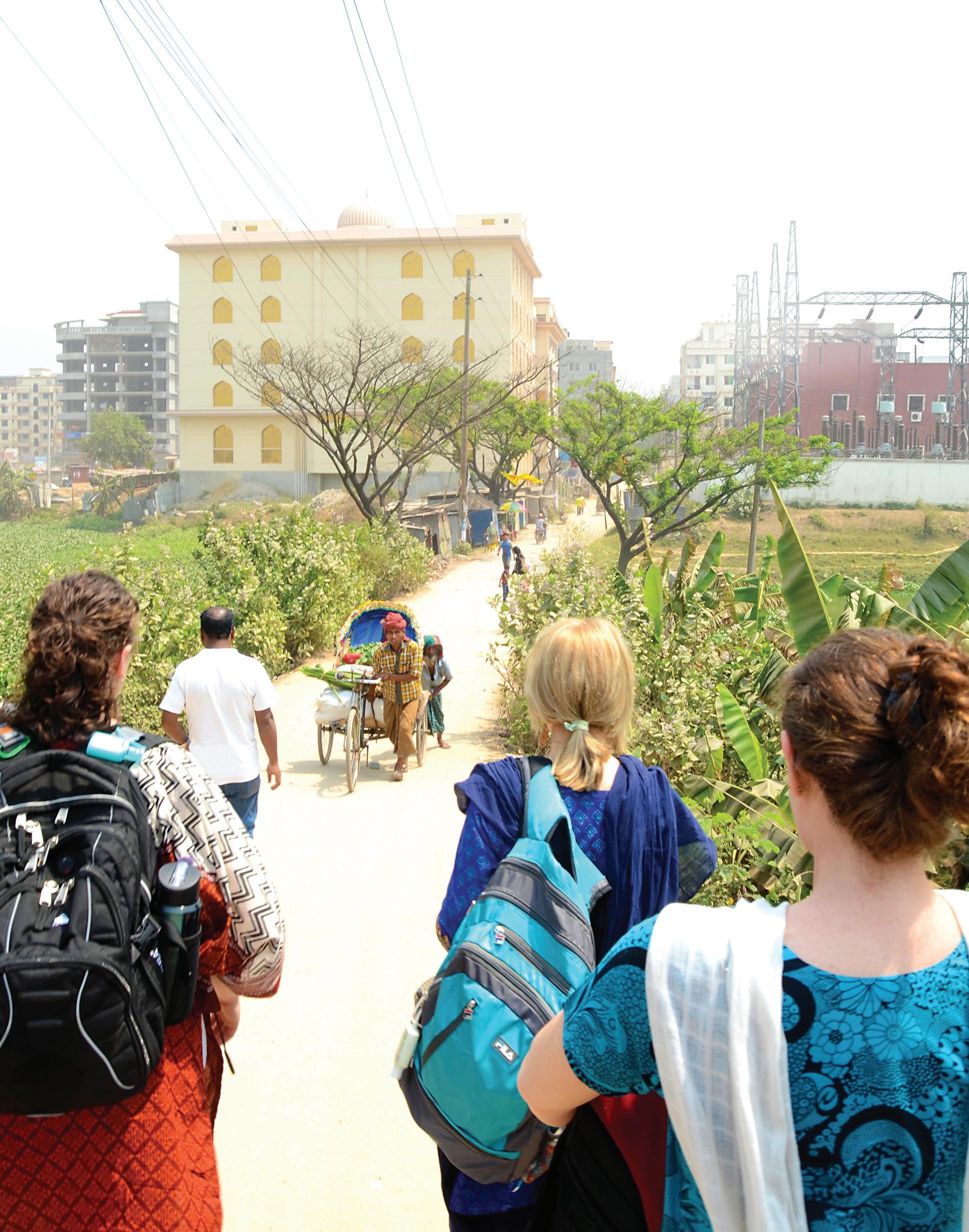
To request a copy of the Journeys missions trip booklet, e-mail RachelCarter@IBSA.org, or call (217) 391-3101. To see the full list of mission trip opportunities go to IBSA.org/missions It’s time to GO Illinois Baptist State Association Journeys MISSION TRIPS 2020 Where is God calling you? Plan a mission trip for yourself and your church. IBSA can help.
INSIDE
Cold spots

2 Eric Reed Required: One small child
6 Carmen Halsey
My husband’s gift of legacy
7 Doug Morrow Some ideas on teaching
8 Jack Lucas
ILLINOIS BAPTIST STATE ASSOCIATION

EDITOR
Eric Reed
DESIGNER
Kris Kell
SOCIAL MEDIA MANAGER
Lisa Misner
EDITORIAL CONTRIBUTORS
Meredith Flynn
Leah Honnen
9 Mark Emerson
Published three times each year, Resource provides new information about IBSA ministries, equipping opportunities, and services. This periodical is sent free of charge to church leaders. To request more copies for your leaders, contact Communications@IBSA.org. Resource is also available online at http://resource. IBSA.org.
For questions about subscriptions, articles, or events, contact the IBSA Communications Team at (217) 391-3119 or e-mail Communications@IBSA.org.
POSTMASTER: Resource is owned and published 3 times each year (Jan., May, and Sept.) by the Illinois Baptist State Association, 3085 Stevenson Drive, Springfield, Illinois 62703-4440.
SPRING 2020
IBSA.org 01 10 COOL, CALM & KOINONIA Stephen Williams recommends 5 keys for better fellowship 13 THE QUIZ Interactive: Self-test your church’s friendliness level 14 BUILDING COMMUNITY Interactive: “One another” 15 A PLACE FOR EVERYONE Entry level jobs give newcomers purpose 16 FIRST, YOU SMILE Doug Munton taught his church to welcome guests 32 MEREDITH FLYNN Plug and play community. It works! INSIGHT
stewardship
on the next
Successful leadership depends
generation
Who needs camp? PLANNER 19 Monthly calendars January through April EQUIPPING 26 Status Report: Revitalization in American churches 28 Leadership 30 Missions 31 Camps and Services
Every church has a few, but you can warm them up
ideas for warm weather ministry SUMMER JUMPSTART
on P. 22
21
Starting
Read Acts 2:42-47
These verses show the immediate outcome of Pentecost, as the Holy Spirit has come and thousands of people in Jerusalem are being saved. The family life of the church is remarkable. The evidence of the transforming love of Christ is displayed in public gatherings and private homes. And it touches every aspect of the new believers’ lives.
Make a list of the activities of First Church Jerusalem.
The price of admission

My wife and I attended a church a while back that seemed to have an unusual membership requirement: a small child, or perhaps several of them. We didn’t have one.
The church was home to large families. The building was always busy with kid-related activities. The services were sometimes boisterous. And the fellowship in the lobby afterward involved a lot of playing tag and running and circling round the legs of the adults. “Not it!” seemed to be the parting blessing.
Church life there was fun, it was upbeat, but we felt out of place. Kids were the natural point of connection for most adults, and they made the rounds of each other’s homes for playdates and birthdays and homeschool co-ops. We joined the church anyway, but it took a long time to find our place.
ages who minister to people of all ages. Their price of admission wasn’t ages or stages of life, and frankly, it felt a little easier to find an entry into church life. You really didn’t have to know someone to get into a small group, the list was clearly published. You didn’t have to ask directions to classrooms, restrooms, or the holy of holies, because they were clearly marked. And their stance on salvation by faith in Jesus Christ was clear, but they were open to discussion on doctrinal matters, even beliefs firmly held.
Can these activities be categorized as large group or small group events? Are they public or private?
If you made a similar list of your church’s regular activities, would you find contemporary counterparts to all these Acts 2 activities?
How would you describe the fellowship of the early church?
What lesson can you apply to your congregation?
Most churches have a “price of admission,” the thing that characterizes the fellowship and most of the attenders. It may be a stage of life, a music preference, or a theological belief. It could be a political stance or whatever would be on the bumpers of most cars in the parking lot, if they all had bumper stickers. And many churches don’t really recognize their defining characteristics, or the impact of those characteristics on people who may consider joining.
Visiting a church recently, I heard the pastor describe the church as a “multigenerational congregation.” In fact, he said during the welcome time, they had chosen to be a gathering of people of all
If I were looking for a church, I’d consider that one.
The takeaway is this: How easy or difficult is it to enter into the body life of our church? Are the entrances hidden by some unstated requirement we may not recognize? Welcome is more than a sign. It’s an intentional invitation to people to find personal connection—for others to make themselves at home in a place we already think of as home.
Eric Reed, Editor
02 RESOURCE SPRING 2020
LEADER LIFE
Executive Team
Operations Team
Communications Team
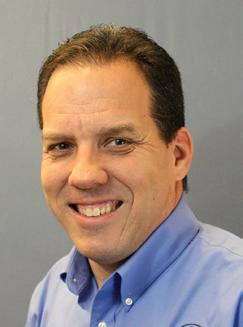
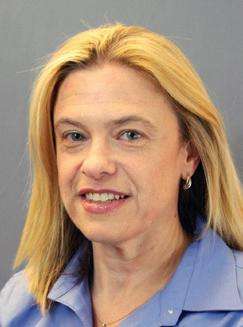

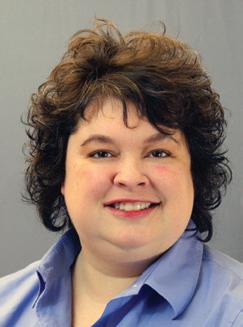

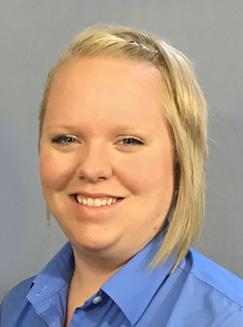

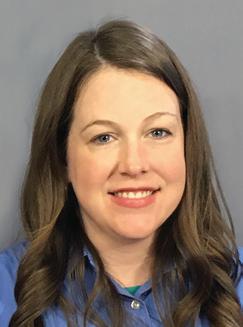
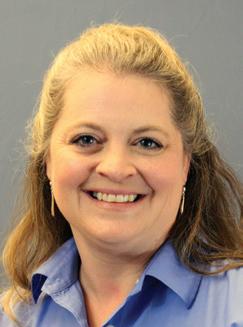
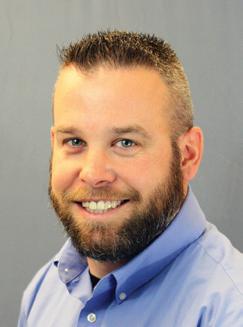
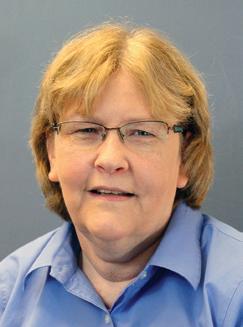
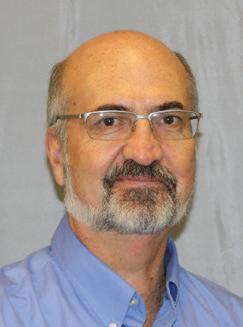
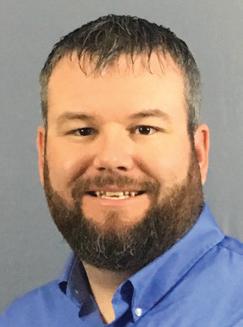

IBSA IBSA.org 03
DIRECTORY
Nate Adams Executive Director (217) 391-3108 John Carruthers Church Engagement Coordinator (573) 247-5535
Jeff Deasy Administrative Director (217) 391-3104 Carole Doom Information Specialist (217) 391-3113 Drew Heironimus Director Information Systems (217) 391-3112 Kendra Jackson Bookkeeper (217) 391-3111 Ashley Parsons Accountant (217) 391-3106
Eric Reed Administrative Director Editor, Illinois Baptist (217) 391-3109 Leah Honnen Administrative Assistant (217) 391-3127 Kris Kell Production Manager (217) 391-3115 Lisa Misner Social Media & Public Policy Manager (217) 391-3119 Meredith Flynn Content Manager Managing Editor Illinois Baptist (217) 391-3120 Barb Troeger Executive Assistant (217) 391-3107 Mark Emerson Associate Executive Director (217) 391-3136
Leadership Development Team
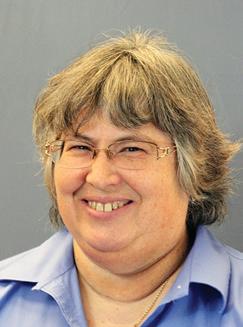
Revitalization Team
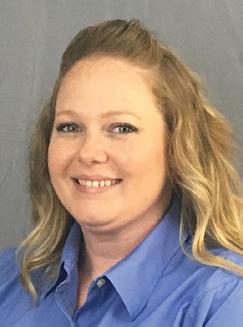

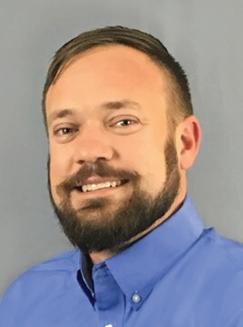
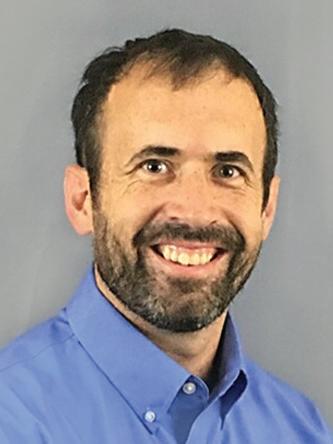
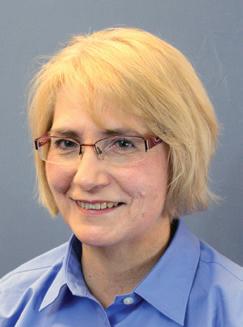
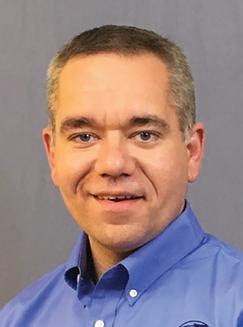
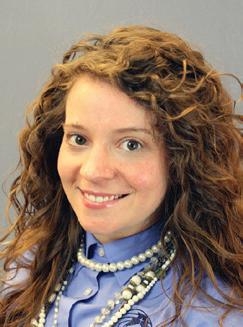
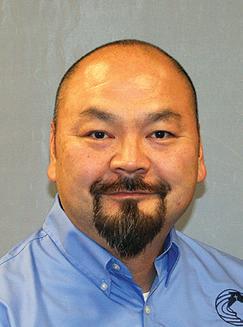

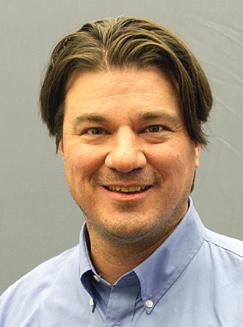
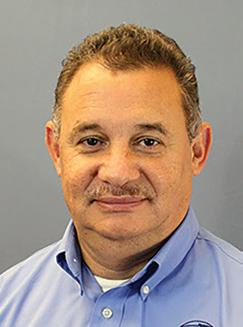
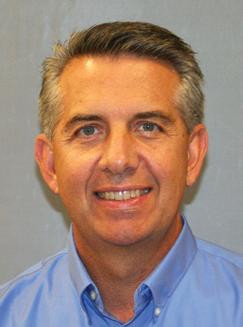

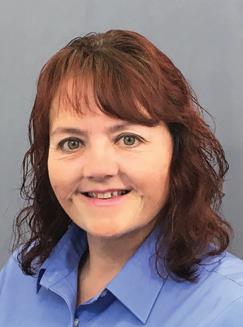

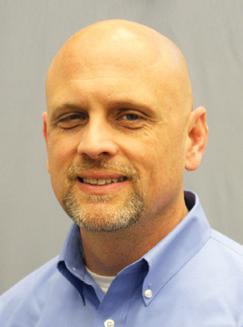
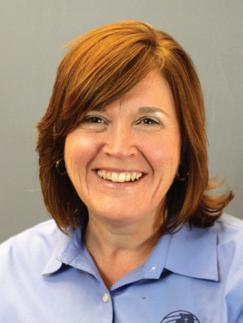
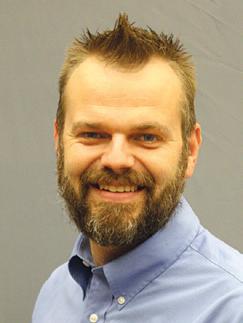
IBSA Camps
Mobilization Team
04 RESOURCE SPRING 2020
DIRECTORY
Philip Hall Manager Lake Sallateeska Baptist Camp (618) 336-5272
Carmen Halsey Leadership Development Director (217) 391-3143
Jack Lucas Leadership Development Director (217) 391-3135
Mike Young Manager Streator Baptist Camp (815) 672-0084
Tammy Butler Ministry Assistant (217) 391-3124
Debbie Muller Ministry Assistant (217) 391-3126
Tammy Ratsch Ministry Assistant (217) 391-3128
Tim Bailey CP – Catalyst Northeast Region (814) 221-4173
Jorge Melendez CP – Catalyst (630) 710-3106
Eddie Pullen Church Planting Director (618) 751-0695
Ken Wilson CP – Catalyst Central, Southern Regions (618) 697-1036
John Yi CP – Catalyst Northeast Region (312) 608-0349
Rachel Carter Ministry Assistant (217) 391-3101
Scott Foshie Revitalization Director (217) 391-3122
Linda Darden Ministry Assistant (217) 391-3137
Brad Lovin Administrative Director/Missions (217) 391-3131
Kevin Jones Church Planting Director (217) 391-3123
Butch Porter Disaster Relief (618) 499-2215
Aubrey Krol Ministry Assistant (217) 391-3138
Zone Consultants
494-1447
IBSA Zones 1-10
To E-mail IBSA Staff, type the first and last name (no spaces) @IBSA.org.

Example: LisaMisner@IBSA.org

Local Associations
ANTIOCH (270) 816-5236
BAY CREEK (217) 779-7477
BIG SALINE (618) 252-1415
CENTRAL (217) 330-7593
CHICAGO METRO (773) 278-4400
CLEAR CREEK (618) 833-4481
EAST CENTRAL (217) 586-5599
FOX VALLEY (573) 579-8143
FRANKLIN (618) 439-3742

GATEWAY (618) 254-3953
GOSHEN TRAIL (618) 643-2937
GREATER WABASH (618) 847-3041
HEARTLAND NETWORK (217) 529-3429
KASKASKIA (618) 227-0001
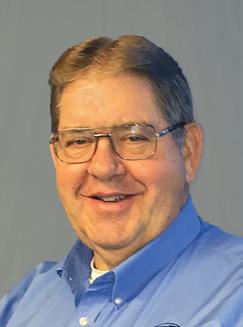
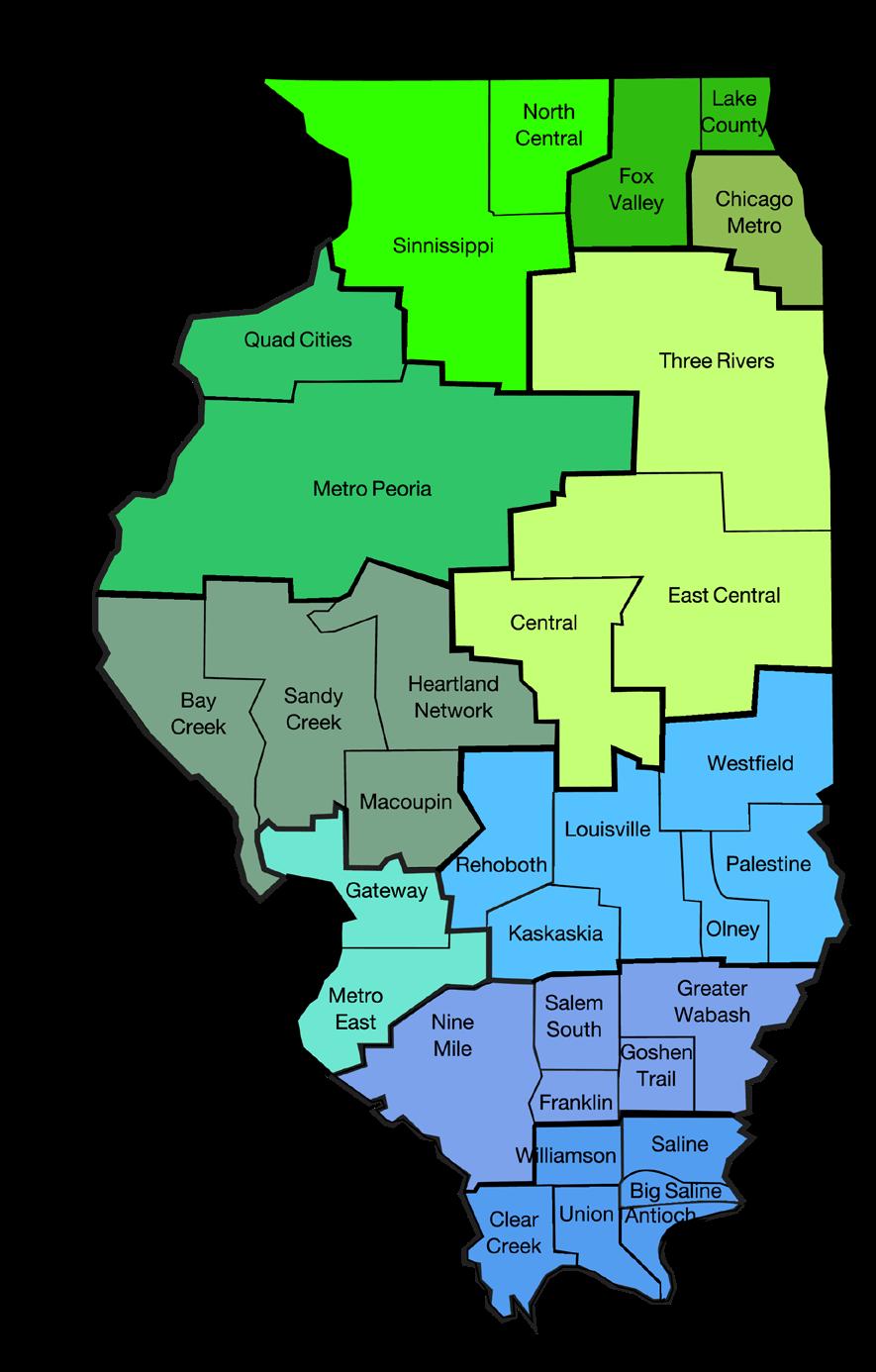

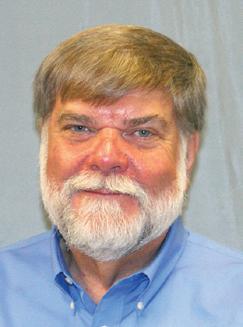
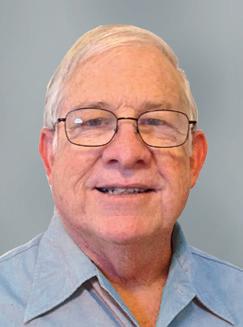
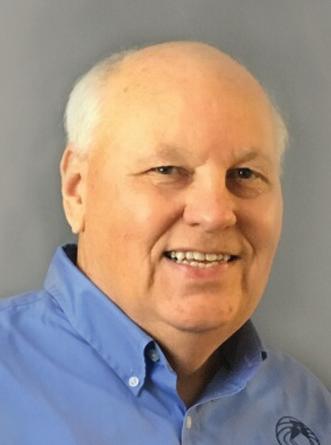
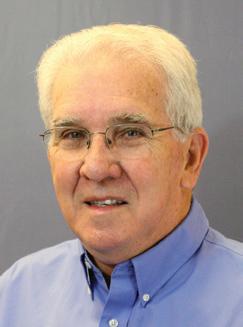
LAKE COUNTY (847) 336-3960
LOUISVILLE (618) 283-0842
MACOUPIN (217) 854-8279

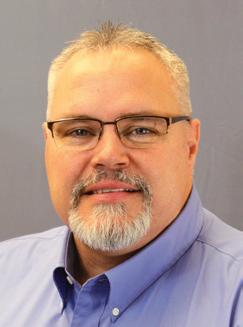
METRO EAST (618) 624-4444
METRO PEORIA (309) 633-5440
NINE MILE (618) 357-5171
NORTH CENTRAL (815) 633-6323
OLNEY (618) 392-7001
PALESTINE (618) 569-3189
QUAD CITIES (309) 221-4143
REHOBOTH (618) 283-0842
SALEM SOUTH (618) 242-7862
SALINE (618) 252-1440
SANDY CREEK (217) 882-2231
SINNISSIPPI (815) 440-2894
THREE RIVERS (815) 725-7361
UNION (618) 524-9738
WEST CENTRAL (309) 351-5499
WESTFIELD (217) 895-5214
WILLIAMSON (618) 993-6069
IBSA.org 05 DIRECTORY
Joe Oliver Zone 2 (847) 754-0356
Brian McWethy Zone 4 (815) 901-2767
Joe Gardner Zone 5 (309) 369-1403
Bob Evaul Zone 7 (618) 567-6170
Larry Rhodes Zone 8 (618) 972-5683
Stephen Williams Zone 10 (618) 920-8545
Ben Jones Zone 9 (618) 308-7600
1 2 3 4 5 6 7 8 9 10
Cliff Woodman Zone 6 (618) 946-5720
Pat Pajak Zone 3 (217)
Bryan Price Zone 1 (630) 908-0853
My husband’s missions legacy
His investment brought people to Jesus
Afew months after my husband died last year, I went on a mission trip he was scheduled to take to Dominican Republic. It is a very special place to both of us, having led numerous teams there to help local churches reach the people in their communities with the gospel.
It was the hardest trip I’ve ever taken. The people Keith had worked with there were grieving his death, as I was and still am. Even after decades of marriage, I hadn’t fully realized the deep impact he had on other people. Keith was a simple man, but he was so authentic in his relationships. Like a dad or a big brother, he often represented strength to the people around him.
Walking through a Dominican village on that trip, a lady stopped me and grabbed my hands. “Keith,” she said to me, “I was his best friend.”
Over and over, I met with people in that country who felt the same way about him. I had gone to the DR to see people we love and to get some kind of closure. What I experienced there showed me Keith had been aware that his investment in the place was only as valuable as his willingness to prepare the people to take responsibility for their mission field.
He didn’t help create ministry so he could run it during a couple of trips overseas every year. He intentionally invested in leaders there. His friend Ramon Ortiz is one example. Over the years, Keith brought volunteers to help Pastor Ortiz’s church host Vacation Bible School and train adults to share their faith. He encouraged the Dominican church toward their own missions strategy—to reach their country and others. Our church in Raymond took a vision trip to Mexico
last year, with the intent that we would return with a team from Pastor Ortiz’s church.
Keith’s legacy is evident in the DR. Pastor Ortiz’s church is preparing to dedicate a new building. There are dozens of families involved in the ministry there, and committed to seeing their fellow countrymen come to know Christ. Here in Illinois, many of the people and churches Keith took to the DR are still going. They’ve developed long-term partnerships because of the missions potential he saw and shared with them.
I don’t know exactly what my role will be in continuing Keith’s work in the Dominican Republic. Much of what he worked toward is already continuing through leaders there. But I did come away from my trip reminded of this part of Keith’s legacy: he knew it wasn’t about him. All the effort he put in would have been wasted without the intent to turn the ministry over to the people best positioned to do it. He also spent much of his time investing in them personally.

There are connections to be made to our work here, as local church leaders called “to equip the saints for the work of ministry, for building up the body of Christ” (Ephesians 4:12). May we be the kind of leaders who are called “friend” by the people who lead, and whose legacy is that we knew it was never about us.
CARMEN HALSEY is IBSA’s director of leadership development. CarmenHalsey@IBSA.org
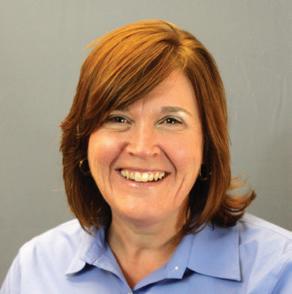
06 RESOURCE SPRING 2020 INSIGHT LEADERSHIP
Time for a ticklish subject
How many times have I heard pastors say, “I just don’t like to preach on stewardship!” Sometimes it’s an admission: “Well, I preach on stewardship once a year because I feel like I really ought to.”
And yet stewardship—the management of resources or property for a true owner—is a consistent and crucial theme throughout Scripture. The Bible discusses management of resources more than 2,300 times.
Author Randy Alcorn notes more than 15% of Jesus’ teaching focused on this topic. That’s more than his teachings on heaven and hell combined! Obviously how God’s people manage his resources is very much on God’s mind. And it stands to reason, it should be on ours as well.
But why would God care so much about this area of our lives?
In the culture of the Bible and in ours, the majority of our time is spent in making, managing, and spending money. It’s estimated that 75% of our waking hours are occupied in this way. When you consider all the time spent at work, planning, budgeting, shopping, investing, etc., it’s easy to see that three-fourths of our time isn’t far from the mark. And clearly, something that commands such a large portion of our time certainly commands our attention.
Money and possessions have an uncanny ability to exert control over our heart. This truth is at the heart (pun intended) of Jesus’ teaching in Matthew 6:21: the Lord points out that where our treasure is (literally a statement of value) is also the space our heart occupies. In case this truth is lost on us, he clearly reminds us this is an issue of discipleship and followship in verse 24 as Jesus says one simply cannot serve two masters, both God and money.
For ourselves and those we serve, we must recognize that generosity produces incredible joy. In contrast, a life without generosity produces great pain!
A quick example of the negative can be found in the story of the “rich young ruler” in Luke 18:18-30. In the story, Jesus challenges a wealthy individual to “sell all he has and give it to the poor.” Luke tells us that instead of a positive response, the young man leaves Jesus crestfallen because of his wealth. His “things” simply meant too much to him.
But thankfully, the Bible doesn’t just describe the result of a lack of generosity. The Bible clearly states that we can know great joy when we are generous. Paul counsels Timothy to specifically warn the wealthy against greed and that they should be “generous and willing to share.” In 1 Timothy 6:17-19, Paul notes that when they are generous, they can take hold of “life that is truly life” in the NIV and ESV. In other words, life lived completely, to the fullest, is marked by wonderful generosity! The New Living Translation is even more explicit: “that they may experience true life.”
For the reluctant preacher, the key is turning once again to our call to serve the church. And the biblical witness is clear. To be effective disciples, we must live generously, as faithful stewards of all God has given us to manage.
May I recommend teaching on ...
budgeting and wise saving, Proverbs 13:11
God’s ownership of what we manage, Psalm 24:1, Deuteronomy 10:14
the dangers of greed, 1 Timothy 6:17
the joy of generosity, Acts 20:35
DougMorrow@IBSA.org

IBSA.org 07 INSIGHT STEWARDSHIP
DOUG MORROW is executive director of the Baptist Foundation of Illinois.
Teaching about money is not optional, it’s biblical
Why mentorship matters
My oldest son showed signs early on that he is a gifted teacher. When he was a teenager, he had opportunities to serve in our church’s youth group. But as his pastor, I missed a strategic opportunity to help him grow.
I should have paired him with that church’s master Sunday school teacher, Miss Norma, in a mentorship that would have let him benefit from her knowledge and experience. My heart hurts when I think about that missed opportunity, and other chances we didn’t take to help adults in our church develop mentoring relationships with younger believers.
As a church leader, you know these kinds of relationships take time to develop, and it can be a lot of work on the front end to get them started. But research shows us the generation known as Gen Z often defines themselves in terms of accomplishments and future goals. They’re looking for ways to live out their gifting—who better to walk alongside them than leaders in your church who are gifted in the same areas? As mentors, we can remind them that their true identity is in Christ, but we can also help them put their God-given strengths to work in the church.
A recent LifeWay Research study asked parents about their grown children’s spiritual health. According to the research, only 33% of kids regularly serve in church, but
those that do so are stronger spiritually as adults. An earlier study, which compared young adults who stayed in church with those who dropped out, found 16% more of those who stayed had regular responsibilities in the church.
Some churches are already doing this in areas like worship and missions. It’s more common to see adult Christians coaching younger believers in worship rehearsal or on a mission trip. But along with those, consider other areas of church life, like teaching or leadership. How can you identify future deacons or elders, and start training them now? Who can you partner with them so they can see what it really means to wisely steward a church’s resources?
Start by identifying adult leaders in your church who can invest some time each week or month in developing a mentorship. If it’s a teacher like Miss Norma, suggest the teacher-in-training spend some time observing in her classroom. If the mentor is an elder or deacon, encourage the younger church member to watch him in action at a church business meeting, or to accompany a small group of experienced leaders as they visit newcomers.
Training students for future ministry likely will result in them doing ministry in a church other than yours. Be prepared to make a kingdom investment. Equip students for meaningful, Christ-centered ministry wherever they go. Pray that other churches are doing the same for the young people who will eventually come to your church.
“Nothing
Two
JACK LUCAS is leadership development director. JackLucas@IBSA.org

08 RESOURCE SPRING 2020
INSIGHT NEXT GENERATION
I recommend at LifeWay.com
Reach:
Resources
“Within
The Power of Small Changes in Keeping Students Connected”
Less: Engaging Kids in a Lifetime of Faith”
LifeWay Research studies on young people and the church may be particularly helpful as your church considers the value of mentorship.
Take the opportunity to train your church’s future leaders
Ministry in a quiet place
nlike several of my coworkers, I did not receive the Lord at camp. Yet, thinking back through my time attending summer camp as a student and leading camps for the past 30 years, most of the major spiritual decisions in my life happened in a camp context.

I can show you the exact spot in the conference room at Streator Baptist Camp where, as a church planter, I was overwhelmed and broken, and Gene Wilson (IBSA Executive Director at that time) placed his hands on me and basically said, “Let me take that burden from you.” I left that spot changed.
God still uses camps to change lives!
I have attended several associational meetings this season and have noted that the most passionate ministry reports still revolve around the subject of camp. At IBSA, we are celebrating four years of double-digit growth in camp attendance. This past summer, 84 children and students made professions of faith. But for those still questioning the spiritual significance of these places, let me offer the following apologetic.
Camp is a place where we can “come away.” Jesus challenged his disciples in Mark 6, “Come away with me. Let us go alone to a quiet place and rest for a while.” His answer to the stresses of ministry was to go to a place where the ministry could be placed on hold while they rested and recovered. Camp is a place where people can come away from stresses so they can refocus, refuel, and restore.
Camp is a place where we can “come together.” Nothing seems to draw a group together more than spending time together in a retreat setting. This past fall, many of our churches participated in weekend retreats where they came together around God’s word and his mission. If your church seems splintered at the moment, consider using camp to get back on the same page.
Camp is a place where we can “come back.”
Making a comeback seems to be more of a sports metaphor than a camp benefit, but many who participated in camp last year came home different. Many received Christ, others repented and rededicated, and those who were weak found strength to get back to the life that God had planned for them. Is a comeback in order? You might want to consider going to an IBSA camp.
So that’s my story. As a young church planter who was struggling to keep going, God used an IBSA camp to offer me the opportunity of coming away, coming together, and coming back to the mission that God had chosen for me. How about joining me this year at camp?
MARK EMERSON is associate executive director. MarkEmerson@IBSA.org
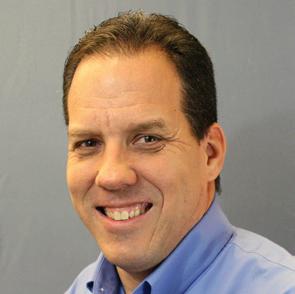
INSIGHT DISCIPLESHIP
IBSA.org 09
What happens at camp can be life changing. It was for me.
U
CLIMATE CHANGE
COOL, CALM & KOINONIA
Keys to building better relationships within the church body
 by Stephen Williams
by Stephen Williams
10 RESOURCE SPRING 2020
n the New Testament, “fellowship” is the translation of a Greek word that has deep roots in both testaments. Koinonia is used in the New Testament and also in the Greek translation of the Old Testament called the Septuagint. If you dig around into its history, you find two pictures that at first glance appear to be opposite. One picture is a common piece of pottery. The other is a vessel that is to be set aside for the house of worship.
purpose. Do nothing out of selfish ambition or conceit, but in humility consider others as more important than yourselves. Everyone should look out not only for his own interests, but also for the interests of others” (Philippians 2:2-4 CSB).
Consider everyone else more important than yourself. This is what leaders have to do by example with the attitude of humility if they want to build the fellowship. This is where it must begin.
koinonia
Both pictures present the foundation for what fellowship means to the church. We have everything in common, and yet we are set aside for the worship of God. This is true for every Christian in the local assembly called a church. We do not have a fellowship that is partial to some over others. Everyone has a place.
Noun (NT Greek)
Christian fellowship, partnership, or communion with God or, more commonly, with fellow believers
But there are times when not everyone feels included. Sometimes it happens as a church grows. Other times it’s the impact of our technologically-close-but-physically-distant culture. And people spend fewer hours together at the church facilities today. Whatever the cause, it seems harder to achieve real fellowship. It’s as true in the rural church I serve as in city and suburban churches. As a pastor, I make intentional effort to build up the fellowship among church members. Here’s how:
Key 1: Make sure everybody is somebody
The first key to building the fellowship is to display a sincere humility that values and prefers each member equally. It takes humility to realize that each person is an essential part in the body, but one that cannot function without the others.
Paul develops this idea in his first letter to the church at Corinth where he sets out to break down the cliques and classes that sometimes develop in churches (chapter 12). He emphasizes the oneness of the church as a body in Ephesians as well (chapter 4). In Philippians he points out that the Christian must follow the example of Christ by avoiding the positioning that causes people to push their own preferences to the front and everybody else’s to the back.
“…make my joy complete by thinking the same way, having the same love, united in spirit, intent on one
What I have done where I pastor is battle against ideas like “I must be consulted,” or “Good ideas must come from me.” Or the notion that “Since I am ‘the leader,’ I must direct everything.” Our church has a value that the people on the ground doing a ministry make the decisions about that ministry. Of course, we do not do this without talking to each other, but we defer to the people who are getting their hands dirty. We insist on it. This is our way of living out that every member of the body is essential.
Key 2: Trust young people
One strategy that helps a church reach younger people is to learn how to give away the keys—literally. I found it well articulated in the book Growing Young: 6 Essential Strategies to Help Young People Discover and Love Your Church (Baker Books, 2016): “No matter your role, here is what we want you to know: if you are willing to entrust your keys to young people, they will trust you with their hearts, their energy, their creativity, and even their friends” (p. 55). This is what the authors learned from studying a group of churches—small and large, traditional and contemporary—that were reaching young people successfully.
Valuing each member as a source of Holy Spirit inspiration, energetic service, and sacrificial commitment will build the kind of fellowship described in the New Testament. In Paul’s terminology, if you are an eye, you are no good at all without a head to be inserted in and legs to carry you around. The quiet member in the back of the room—unnoticeable by what most would consider to be significant—is as essential and as valued by God as I am, in and for the fellowship. Really!
IBSA.org 11 I
12
Continued on p.
[ˌkoinəˈnēə]
Key 3: Pass the baton
Let people do things that you think you can do better— perhaps that you know you can do better. It’s not easy, but it must be done.
I watched one of the kittens that were born on the deck behind my house catch his first mouse. It was still alive as he tossed the mouse about and used it for a toy. The mother cat was watching. She could do it better, but she knew something it took me too long to figure out: let the kid try. God blesses the work of the learning disciple more than the practiced ways of the pro, because God is foremost a proponent of a process that provides for disciples to be around in every generation.
We must pass the baton. To pass the baton in church, because it is multigenerational, is to hand it off to someone less experienced than yourself.
Key 4: Brag on others
The next key to building fellowship is really easy. Praise your people with sincerity and regularity. Avoid negativity. If there is something the church is not as good at as you would like, praise them wherever they are on the path. If you praise your people wherever they are in their growth, they will aspire to a higher place on that path.
If you take the negative approach, they will feel guilty. Guilt might motivate for a while; but recognition of genuine progress will inspire for the longterm. This practice is easy because it is fun. I praise my congregation knowing that God values them more than I know how.
When I am out among the pastors of other churches, I share that our church is the best church anywhere around. Of course, I apologize to those pastors because they may think they have the best church around. I respectfully disagree. And then I tell my congregation exactly what I say the reasons are—the things I tell those pastors specifically that our church does well. It is as if they are eavesdropping on a spoken and timely word that moves them to want to be even more like what they are hearing.
To do this, I concentrate on what is good in the fellowship at the expense of what is lacking. I know that sometimes we must face off with a problem. Everybody knows that! But our regular diet of conversation is focused on

how God is blessing, how well the people are getting along, and how diligently they are serving.
This must be honest talk. If it is not sincere, it will not be believed.
Key 5: Teach people to talk it out
The final key is of greatest importance. To build the fellowship, the people must talk to each other when there is disagreement. This is a value at our church: “Just ask!”
Church members have a tendency not to talk with each other when they want something to go their way. This is human nature. We look for a tool with which to manipulate the group. We use surprise business meeting motions, skipping out on activities those we disagree with promote, cornering the pastor or deacons and trying to get them to take action on our behalf. But what we must do instead is just ask!
As church leaders, we must be alert to what is going on when members choose an unhelpful approach to addressing a disagreement. With the spirit of inquiry and humility, we must have a private conversation. Families do this when they have strong fellowship. They talk things out.
I was just a kid in a student pastorate when a group in the church brought to me an accusation. They said that one of our members had parties nearly every weekend and that “somebody” needed to confront this family.
Well, I did not know much, but I knew that the accusation needed to be verified by an eyewitness before “somebody” could approach them. We needed an eyewitness.
“Which ones of you have seen this firsthand?” None had.
“Do you know someone who has seen this firsthand?” They didn’t. I invited them to bring me someone, anyone, who had witnessed this party, and then we would take appropriate action. No one ever did.
About a year later, l learned in a seminary class that there were likely two informal power groups in our church. The light bulb went on. The group that had approached me was one of those groups. They were the quiet ones for the most part. They deferred to the other, more assertive group most of the time.
This quieter group had a special interest. They wanted the kitchen in the church basement to be fixed up. It really
12 RESOURCE SPRING 2020
A leaky basement kitchen put our fellowship to the test.
did need a makeover. The first step was to find a solution to the leaky basement before we could start the renovation. We were advised that if we poured five-inch thick walkways around two sides of the building that, in a flash flood, the water would be diverted away from the building. We poured the walks and it indeed solved the problem—but how to pay for it for the next phase?
As it turns out, a fund to fix the leaky kitchen had been established by each of the groups. The fund had two names: “The Basement Fund” and “The Kitchen Fund.” Each group contributed to its version of the fund, but all the money was spent on sidewalks. It appeared we might have a disagreement over the use of the monies and how to pay for next steps in the renovation. The quiet group set up another meeting with me.
During my time there, I had observed that the unity was highly valued. If someone had the courage to make a motion in a business meeting, it almost always passed without opposition.
So I advised them to make the following motion: “I move that now that the basement leak has been fixed that we go ahead with our plans to renovate the kitchen and use general funds to pay for it.”
I approached the other group and prepared them for what was coming. Someone from the quiet group stood up in the next business meeting, made the motion, and it passed.
“What a fellowship! What a joy divine!” The disaster was averted, mainly because the groups involved talked with me and in effect with each other. To build the fellowship, people must talk to each other and they must talk to their leaders before resolving to manipulate.
I wish I could lay out a simple step-by-step list of things to do to build the fellowship, but the church is a living, breathing body. We have to live there, immersed in it, with the attitudes that Christ directed us to have as his followers. Like any good parent raising a child, we must pass the baton. We must motivate the people with honest praise and sincere aspiration born of a leader’s loving care. And people must talk to each other.
Koinonia Quiz
Test your church’s fellowship. Score each item 0 to 5 points. Add the numbers. On the “90-100 is an A” scale, how did your church do? Ask several regular attenders and newcomers to take the quiz. Compare the scores of long-term and short-term members of the church family
1. Guests are regularly welcomed by people other than official greeter at the door.
2. There is genuine friendly interaction outside of the sanctioned greeting time.
3. Newcomers are invited to lunch or small groups or other “get-to-know-you” opportunities.
4. The church’s Sunday welcome begins beyond the front door, in the parking lot, for example.
5. Classes or groups take responsibility to draw worship guests into their Bible study meetings.
6. Rather than putting on a happy church face, members speak honestly about how they feel.
7. Members freely share prayer needs.
8. Instead of rushing to their cars, worship attenders hang around awhile after church.
9. As in the early church, members share meals and socialize together.
10. Hospitality is highly valued in the church.
11. Members mention running into other church folks outside of church.
12. Members are on social media together.
13. Members mention church activities on their personal social media.
14. The church’s Facebook page (or other social media) is active and frequently updated.
15. A high percentage of members would say church friends are among their best friends.
16. Members regularly help other church members with needs or errands.
17. The church takes care of widows and orphans.
18. The church is known in the community for acts of benevolence.
19. Newcomers are able to find places of service within two months.
20. Servanthood is a high value in the church.
StephenWilliams@IBSA.org

IBSA.org 13 R
STEPHEN WILLIAMS is IBSA Zone Consultant for zone 10 in the southern tip of the state and pastor of Simpson Missionary Baptist Church.
– ER Total
INTERACTIVE BUILDING COMMUNITY
Here are a few of the “one another” statements bundled together. You may use the list as a Bible study or leadership team exercise. Ask church members to identify two or three areas of potential growth. Plan teaching or ministry that build on those particular “one anothers.”
Love one another – John 13:34, 15:17; 1 John 3:11, 23, 4:7, 11:12
How well we “one another” is a good test of the warmth and effectiveness of community. The Greek word allelon appears 59 times in the New Testament, describing Christlike behaviors of believers toward each other. Of those, 15 specifically say “love one another.”

Doodle Space
Honor one another – Rom. 12:10
Live in harmony with one another – Rom. 12:16; 1 Peter 3:8
Stop passing judgment on one another – Rom. 14:13
Accept one another – Rom. 15:7
Instruct one another – Rom. 15:14
Serve one another – Gal. 13:12
Carry one another’s burdens – Gal. 6:2
Forgive one another – Col. 3:13
Encourage one another – 1 Thess. 4:18, 5:11; Heb. 3:13, 10:25
Draw three activities the church can do this spring to “build up one another” (1 Thess. 5:11).
14 RESOURCE SPRING 2020
Even before taking the membership class Start serving now I
n most churches, Sunday worship services mean all hands on deck. Greeters, teachers, sound techs, worship leaders—most of them volunteers—are all needed to create an experience that draws people inside and outside the church closer to Jesus.
At Delta Church in Springfield, serving on Sunday starts early, often even before someone joins the church as an official member. The church maintains a list of volunteer roles that can be filled by non-members:
• Hospitality coffee station
• Greeting at the front doors and outside the sanctuary
• Set-up and tear-down of children’s spaces and other areas used on Sundays
• Technology, including video projection and sound
“We want people to understand there are ways you can plug in immediately and start serving,” said Pastor Jonathan Davis. And, avoid conveying the message that church is primarily a place to consume, rather than use God-given gifts.
Many Baptist churches traditionally required a waiting period before new members could serve in certain roles, giving a church committee time to take action. But in our post-Christian culture, where going to church on Sunday is no longer a given, engagement is the new attendance, says leadership expert Carey Nieuwhof. Rather than focus on attracting people, the Canadian pastor wrote in 2018, help them engage with the mission of the church. In his words, “People become most passionate about the things with which they’re most involved.”
At the heart of Delta’s strategy are the distinctions between guests, friends, and family, said Delta elder Charles Campbell. Guests are just that, and the church wants them to feel welcome, and expected. Friends have been around a while longer, and while they haven’t stepped into a full commitment to the church, they want to help.
“That’s where these roles come in,” Campbell said, “that both friends and family can serve in. They’re designed to help people engage, but also grow in their walk.”
Delta reserves some volunteer roles for church members, based on the visibility of the position and any teaching or leading required. Musicians on the stage and children’s ministry workers, for example, have gone through Delta’s membership process.
“Our conviction is that I’m not the only one preaching the gospel on Sunday morning,” Davis said. Worship leaders share the gospel through song, and children’s teachers share God’s word with young students. They’re also representing the church’s beliefs about God and Scripture.
“We want theological alignment with our theological convictions,” Davis said, so the church reserves those roles for people who understand and agree with the church’s doctrinal foundations.
Within the church’s volunteer strategy is the belief that all Christians are called to serve. Davis pointed to 1 Corinthians 12, where the Apostle Paul celebrates the roles played by each part of the body of Christ. “For the body does not consist of one member but of many,” he writes in verse 14. And a few verses later: “If all were a single member, where would the body be? As it is, there are many parts, yet one body.”
Any growing church is going to depend on volunteers, but the real point is to help believers in Christ move forward in their calling to serve and live out their faith.
“Even if you never cross the line from friend to family, you’re still a Christian,” Davis said. “You should be using whatever body part you are, deployed somewhere.”
MEREDITH FLYNN is managing editor of the Illinois Baptist. MeredithFlynn@IBSA.org

IBSA.org 15
R
A better welcome I
moved several times as a boy and it wasn’t much fun. Each time I had to overcome old fears, break down unseen barriers, and make new friends. I never liked feeling like an outsider. I haven’t forgotten how it felt to my tender young soul. But it taught me some valuable lessons in helping to connect with guests at church.
Visiting a church can be awkward for a first-time guest. They don’t know the people, customs, or expectations. They can feel nervous, intimidated, or ignored. They may not know the message of the gospel.
Here are some tips to make a real and lasting difference as church members purposely connect with guests:
1. Talk to people you don’t know.
This is the simplest thing that you can do for guests. If you don’t know someone, say hello. Tell them you are glad to see them. I ask almost every Sunday, “Have I met you before?” If I have met them before, I apologize for forgetting and work to get to know them better.
In connecting with guests, just speak to them. Look them in the eye and say a simple greeting. Welcome them. Care about them. A surprising number of church members never do this.
2. Be friendly to non-friends.
Every church in America thinks they are friendly because they are friendly to their friends. But being friendly to your friends does not make your church friendly to guests. I love that our members have church friends with whom they can talk and laugh and visit. But I want them to choose to meet some new people. One of my dearest college friends was the very last guy I met of all the guys on my dorm hall.
3. Learn their names.
Introductions usually involve us telling each other our names. But if we aren’t careful, we quickly forget. Our small groups have come up with a simple solution for this. We are starting to wear name tags. You can’t easily ask the name of a couple in your small group who have been coming for months. It is embarrassing that you
forgot. But name tags help us remember. And they are especially helpful for connecting with guests.
4. Read body language.
If someone looks confused, they probably are confused. A simple, “Can I help you find something?” is helpful. With a little practice, you can begin to understand what people are feeling and thinking from their body language.
Guests often look a bit apprehensive because they are. Learning to read this allows you to do something about this. A friendly face and kind word go a long way toward lowering that nervousness.
Some guests want to remain fairly anonymous. They typically appreciate a friendly greeting but don’t always want deep conversation until they know if they can trust us. You may be able to read that. Perhaps you could say, “If I can help you with anything, just let me know.” Other guests would really like to have someone offer to sit with them. Or they might enjoy some friendly conversation. Body language is a language that communicates volumes when we begin to understand it.
5. Invite them to take next connection steps.
It is entirely appropriate to tell a departing guest that you hope they come back. There is nothing wrong with letting them know about small groups, upcoming special events or membership classes, or classes for their children.
Welcoming a first-time guest is just the start of the assimilation process. A warm welcome goes a long way. But we want more than that for our guests. We want them to consider and trust the claims of Christ. We want them to join us on this discipleship journey. And ultimately, we want them to join us in welcoming other guests and helping them to follow the Lord as well.
DOUG MUNTON is pastor of First Baptist Church of O’Fallon, Illinois.

16 RESOURCE SPRING 2020 R
Friendliness can be taught. Here’s how.
PLANNER
SPRING 2020
Calendar Highlights
As you plan ministry for the spring months, consider how secular holidays and events can help your church connect with your community.

JANUARY
National Soup Month (also Oatmeal Month, but who wants to celebrate that)
1 New Year’s Day
20 Martin Luther King Day
FEBRUARY
Black History Month (teaching opportunity) Canned Food Month (support a food bank)
2 Super Bowl Sunday (or “Souper Bowl!”)

12 Lincoln’s Birthday (state holiday)
14 Valentine’s Day (not a state holiday)
26 Lent begins
MARCH
Women’s History Month (also, Celery, Noodles, Peanuts, and Sauce)
8 Daylight Saving Time begins
17 St. Patrick’s Day
APRIL
National Volunteer Month (perfect fit for ministry) & Autism Awareness
5 Palm Sunday
12 Resurrection Sunday (Easter)
IBSA.org 17
Get a jumpstart on Summer planning. 3
pages of ideas ahead.
JANUARY
5 January Bible Study
13 Tax Seminar
Gateway Association Office, Edwardsville
16 Tax Seminar
IBSA Building, Springfield
19 Sanctity of Human Life Sunday
21-23 2020 Midwest Leadership Summit
Crowne Plaza, Springfield
23 Illinois Leadership Luncheon
IBSA Building, Springfield
28 Tax Seminar
Second Baptist, Marion
31-2/1 VBS Train the Trainer Clinic
IBSA Building, Springfield
NOTES:
PLAN AHEAD FOR January Bible Study
The 2020 focus is on Jeremiah. Plus LifeWay has several undated studies available. JBS can be a one-week experience, or a Sunday night or Wednesday night study all month long. Ask the leadership team if the church will benefit from such a study.
Dates:
Teacher:
Target attenders:
Food or snack preparation:
Family Focus
Among other things, February is “Weddings Month.” This might be a good time for a study on love and marriage.

Dates:
Scripture:
Book/Study Guide:
Teacher:
18 RESOURCE SPRING 2020 PLANNER
PLANNER
FEBRUARY
1 True Love Waits Emphasis
6 iConnect IBSA Building, Springfield
9 Racial Reconciliation Sunday
10 Focus on WMU
22 Church Technology Conference IBSA Building, Springfield
PLAN AHEAD FOR
Annie Armstrong
Easter Offering for North American Missions
The offering that funds church planting and compassion ministries in the U.S. and Canada is coming soon. Plan ahead by doing the following:
What dates shall we put the church calendar for promoting and collecting the offering?
NOTES:
Which Sunday(s) shall we show a NAMB video in the worship service?
Who can share about a North American mission trip?
What special missions activity can we plan to assist a church planter in Illinois?
Who can portray Annie Armstrong or tell about her life in SBC missions, starting with her support for Lottie Moon?
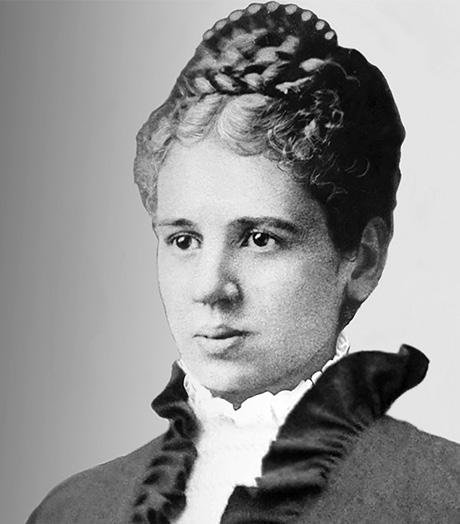
IBSA.org 19
MARCH
1 Youth Week
1-8 Annie Armstrong Easter Offering and Week of Prayer
7 VBS Clinic
First and Chicago area
14 VBS Clinic Mt. Vernon area and Dixon
15 Church Planting Emphasis Sunday
17 Regional Training - East Peoria
PLAN AHEAD FOR Easter Season Outreach
Build on your church’s “Who’s Your One” focus ahead of Easter. Plan some of the following:

21
23-26
NOTES:
“One” Lunch: Ask members to invite their “one” friend. Don’t announce to the crowd that they have been part of a campaign, but make them feel a special welcome.
Gospel Distribution: order Scripture portions (Mark or John perhaps) and hang them on every doorknob in the neighborhood.
Super Big Egg Hunt: Have an event for kids on the Saturday before Palm Sunday. Collect names and invite families to attend Easter services.
Look to the Cross: Plan a sermon series to coincide with Lent and Easter.
20 RESOURCE SPRING 2020
Marion
Journey Church, Peoria
Children’s Missions Day Various locations
ReFocus Preview Events
VBS Clinic Chatham Baptist and Chicago area
Substance Abuse Prevention Sunday
Regional Training Emmanuel
27-28 Disaster Relief Training - South 28
29
31
Baptist, Carlinville
APRIL
5 Palm Sunday
12 Easter
12 Baptist Doctrine Study
16-18 Disaster Relief Training - Central
18 Illinois Student Ministry Conference
19 SBC Seminaries Sunday
24-25 Priority Women’s Conference Crowne Plaza, Springfield
26 Cooperative Program Sunday
PLAN AHEAD FOR
A Fruitful Summer
Summertime is the ripe time for new ministries and special emphases to grow disciples. Start early to plan a season for fresh worship, effective service, and personal growth. Consider some of these ideas for making summer active and productive.
Make plans now using the list of “21 Hot Ideas” starting on the next page.
How can we help adults grow as disciples this summer?
NOTES:
Who in our community are we best positioned to reach with the gospel?
Is God leading us to a mission field or people group at home or away?
What are some ways we can engage whole families in ministry and discipleship?
IBSA.org 21
Continued on p. 22
21 Hot Ideas
Growing season

1. Schedule summer Bible reading.
Start a church-wide Bible reading plan! One Illinois church created a sermon series based on the readings from the week prior to each Sunday. This church used the F-260 Bible reading plan from Replicate Ministries, but you can use the plan of your choice or create your own! You might choose to focus on a single Bible book for the summer.
2. Make vacation spiritually productive.
Adapt an adult Bible study for use all summer or for a single month. Consider the Lifeway Adult VBS curriculum with 5 two-hour sessions. They could be used in a one-week format or adapted for 10 Sundays or Wednesday evenings. Also, the January Bible Study works just as well in warm months. A half-dozen topics are available at LifeWay.com with student books and leader guides.
3. Revisit your worship service.
This is a good time to do a pilot project. Try adding a personal testimony each week. Or designate time for personal prayer. Open the service with the sermon, or schedule Q&A time after the sermon. Ask, “Share how you will apply this message this week?” Add a “Song of the Month” to encourage people who need more time to learn new music.
4. Pray outdoors.
Take prayer meeting outside for the summer. Prayer walk the neighborhood. Pray over downtown or the courthouse or the mayor’s office. Create a special emphasis on prayer for evangelism and the community.
22 RESOURCE SPRING 2020 22 RESOURCE SPRING 2020
JUMPSTART
Here are some great ways to make your warm weather months fun, faith-filled, and productive.
Sprouts
5. Meet God at camp.
Make this the year to take kids, youth, and adults to camp. Look online for many IBSA options for children and students. And adults are needed as counselors and helpers for their church groups. Camp week is often the highlight of the year and a life-changing experience. IBSA.org/kids.
6. Tailgate and a movie.
Bookend the summer with tailgate parties on Memorial Day and Labor Day weekends. One church invited neighbors to bring food to share, then purchased an affordable blow-up screen to watch a family-friendly movie in the church parking lot. A blank outside wall also works well. Kids will love playtime in the church yard.

7. Special Needs VBS.
Lifeway creates a special-needs Vacation Bible School curriculum. Reach out to assisted living facilities, place an ad online, or talk to families with special needs. This community is rarely reached by traditional church practices. Members may begin to see a new mission field within your own community.
8. Where’s the pastor?
This scavenger hunt leads kids to the pastor, who happens to be hiding in plain sight. Like Waldo. (He might even wear a striped shirt and hat like Waldo.) Post clues on social media that lead to the ice cream parlor or baseball diamond. When everyone arrives, enjoy a treat and share a simple Bible lesson related to seeking and finding (Jer. 29:13, Matt. 13:44).
Missions on the road
9. Plan a very short mission trip.
One day. Choose a nearby location and take church members to serve there. Be sure the activity carries the gospel. Give participants opportunity to share their faith, pray for people, and perhaps extend an invitation to a church event. IBSA has a list of missions trips for churches who need help getting started. IBSA.org/missions.
10.
Plan a very long mission trip.
Ask the missions team to begin praying about a location or people group across the state or across the globe who need Jesus. Then plan for a series of missions trips over several years. Multiple visits are more effective for developing relationships and sharing the gospel with unreached people. IBSA can help. Visit IBSA.org/missions.
11. Connect with the Baptist Children’s Home and Family Services.
They may ask your group to serve at an event or complete some service projects around the Carmi campus. Or throw a baby shower for Angels’ Cove maternity care, then plan a date to deliver the gifts. Contact BCHFS for planning assistance: (618) 382-4165 or online at www.bchfs.com.
12. Head toward the Arch.
Sign up your group to volunteer at the Christian Activity Center in East St. Louis! Bring folks of all ages to work with the kids, or bring mechanically minded men and women to serve in construction. Learn more at www.cacesl.org/getinvolved.
13. Fix up.
IBSA’s two camp facilities at Lake Sallateeska and Streator are excellent settings to put eager hands to work. Contact the camps managers to volunteer on fix-up projects. (See page 31 for contact info.)
IBSA.org 23
Community minded
14. Feed the kids!
Many children go without steady meals in the summer months when they’re not in school. Set up a ministry to feed breakfast and possibly lunch to these children. Share the gospel with songs, videos, or maybe dig out the puppets from the youth department storage room. This can be a large undertaking, so you may want to involve the local food bank or other churches.
15. Church in the park.
When you take the Sunday service outside, more visitors show up! A special service in one Southern Illinois town drew 200 people, and 60 of them had no church affiliation. Be sure to collect contact info from each attender and follow up with invitations to regular services, VBS, and recreational activities.
16. Sponsor a 5K or Fun Run!
Encourage your town to get moving. Your church parking lot can be the location to start or end a race. The pastor can offer a brief devotion before the run. Serve water bottles and snacks along the way! Supply shirts or sunglasses. Attach a worship service invitation to the give-aways.
‘Home’ missions
17. Make summertime family time.
Have a special focus for families-on-mission by providing ideas for purposeful together-time each week. Then invite families to share their stories in worship services. Author Karen Huber said, “Living for Jesus as a family doesn’t need a churchy name. In fact, the more ordinary I make it, the more it feels like holy ground.”
18. Drive-time devotions.
Encourage families to take advantage of “mom’s taxi” by asking the kids questions that lead to devotional discussions. As Jesus did, use everyday objects on the journey to spark the conversation. See how God can use your short time together!
19. Make family meals a priority.

Invite others to your table. Host families from church or from the community. Welcome extra kids to join your table if they’re around come dinner time. Connect with these people and build relationships. It can be as simple as that.
20. Show up in the community.
Encourage families to say yes to connecting opportunities. This could mean play dates or concerts, neighborhood watch, or litter cleanup. Others will see their acts of service and wonder what motivates them to do so, even when it’s hard. And as an added bonus, children will see Christ in their parents, too.
21. Host a regular play date at the park or church playground.

Summer can be hard for parents who are home with their kids. Make time for adults to talk while kids run off their extra energy. Expect the conversation to turn to spiritual matters.
– Compiled by Leah Honnen
24 RESOURCE SPRING 2020
EQUIPPING
SPRING 2020
IBSA Highlights
LEADERS
Midwest Leadership Summit VBS Clinics
iConnect - IBSA Pastors Meet Up Church Technology Conference
MISSIONS
Focus on WMU
Disaster Relief Training Mission Trips
Children’s Missions Day

IBSA.org 25
It’s time for a plan
by Eric Reed
One thing all our churches need is revitalization

Apastor shared a prayer request with us as part of IBSA’s pastoral prayer emphasis in October. He described his aging congregation:
“For decades they have given generously and worked faithfully. But as they get older, they aren’t able to give as much or do as much ministry,” the pastor said. “We really need younger members to step up in giving and serving. We need attenders to become members, and members to become servants.”
He might have been describing my congregation—or possibly yours. What he was describing is revitalization— and it’s something all our churches need desperately.
The statistics are quoted often enough that they may become cliché: 80% of Southern Baptist churches are plateaued or declining. Membership, attendance, and baptisms are declining, even as the numbers of churches are increasing. Larger churches, younger churches, and
church plants draw younger people and baptize more people, while older churches struggle to stay level—and afloat. The outcome is that overall the denomination has more but smaller churches.
Southern Baptist churches bucked the national trend at least two decades longer than mainline churches, but what has befallen the Methodists and Presbyterians is now true of the SBC. We used to say that the mainline’s decline was due to the liberal slide in their theology, and that Southern Baptists’ firm conservative stance would hold us steady. But now, we can’t even claim that. The rise of unbelief among Americans, and among those who might call themselves “spiritual” but identify no religious affiliation (“nones”), has taken its toll on all American churches. We’re all in the same boat as the pastor quoted above (with his permission).
26 RESOURCE SPRING 2020
Our congregations are getting older. Even among the young folks we have, there is generally less commitment to personal ministry involvement. And the good souls we do have are getting tired.
What can we do about it?
Against the odds
Consider a few statistics, cited by Rob Peters of Corpus Vitae, a ministry that specializes in helping pastors and churches through a revitalization process:
• In the past 10 years, the American population has increased by almost 10% while church population has decreased about the same amount.
• As many as 360,000 of the 400,000 churches in the U.S. are plateaued or declining. (The 80% figure takes on new meaning when we think about raw numbers.)
• More than 70 churches close their doors each week in the U.S., for a total of 3,640 each year.
• Even taking into account the number of new church plants started each year (4,000), and the number of plants that survive beyond five years (3,400), the total number of churches in America continues to decline each year.
Peters points to the revitalization process as the solution, not for some churches but for all churches. In fact, revitalization should be an ongoing process, not a last resort when a church is faltering and fears the ultimate failure. But the difficulty in revitalization is that most leaders have not experienced it, much less led it.
When to begin revitalization
Jesus told his followers a story that may give us hope for revitalization:
“A man had a fig tree that was planted in his vineyard. He came looking for fruit on it and found none. He told the vineyard worker, ‘Listen, for three years I have come looking for fruit on this fig tree and haven’t found any. Cut it down! Why should it even waste the soil?’
“But he replied to him, ‘Sir, leave it this year also, until I dig around it and fertilize it. Perhaps it will produce fruit next year, but if not, you can cut it down’” (Luke 13:6-9 CSB).
The vine dresser had hope for the fig tree, even though it had been dormant for several years. When the owner had given up hope, even to the point of anger, his worker had a plan. And that plan had, in current terminology, action steps, a timetable, and expected outcomes.
So does revitalization of the local church.
Some church leaders wait so long that revitalization appears impossible. In one chart Peters references, that’s the stage labeled “death rattle.”
The church is so far gone, the final stage is obvious. Intervention is needed before that, when leaders realize the church is in a rut that leads downward. Pulling out of this deep rut is difficult, but it can be done.
Even better is revitalization that starts as soon as leaders begin feeling they’re on a treadmill, as the chart identifies it. In this situation, all the team’s best work still results in slipping numbers and downward movement, because the law of diminishing returns sets in.
“Somewhere along the way, the mission became maintaining it, instead of its true purpose,” said Mark Clifton, revitalization expert for the North American Mission Board, describing the Kansas City church he led from 18 to 120 worship attenders over a decade of revitalization. “It was beautiful, but it was empty.” Just at the point he was ready to quit, Clifton began focusing on turning his few aging church members into real disciples. In his case, that jumpstarted the renewal process that included outreach to their rapidly changing community.
“Churches often begin the process too late,” said IBSA’s Mark Emerson. “We recommend that church leaders study their growth trends and seek help when they discover they are no longer growing and reaching people. IBSA can help churches assess their need and readiness for revitalization.”
With church revitalization as a newly stated goal for Illinois Baptist churches, IBSA has contracted with Rob Peters to help make coaching available for pastors and church leaders.
For more information on church revitalization, contact ScottFoshie@IBSA.org.
IBSA.org 27
churches close each week
of all churches are plateaued or declining
LEADERSHIP
Tax Seminars
1/13 Gateway Association Office, Edwardsville
1/16 IBSA Building, Springfield
1/28 Second Baptist, Marion
Valuable tax info for current and retired ministers, treasurers, and other church leaders.
1/21-23 Crowne Plaza Hotel, Springfield
Church leaders from 12 states and 9 Baptist state conventions will be in Springfield to explore more about ministry in the Midwest. They will expand their leadership skills and learn how to make their churches more effective.

VBS Clinic to Train the Trainer
1/31-2/1 IBSA Building, Springfield
VBS Clinics
3/7 First Baptist, Marion and Chicago area
3/14 Mt. Vernon area and Dixon
3/28 Chatham Baptist and Chicago area
As kids explore a world of concrete and cranes, rivets and rebar, bulldozers and backhoes, they will learn to build their faith on Jesus. The 2020 theme focuses on the truth that he who began a good work will be faithful to carry it on to completion. Participate in our VBS Clinics to learn more about the theme, get great ideas, and be inspired. Training will be offered for several age groups.

Registration 8 a.m.; event 8:30 a.m. – noon
IBSA.org/kids | (217) 391-3135
JackLucas@IBSA.org
(217) 391-3137 | LindaDarden@IBSA.org
2/6 IBSA Building, Springfield
Pastors new to Illinois and pastors who want to reconnect: Learn how resources of the state convention can help your church be more effective at reaching your community and participating in God’s mission to the world.
(217) 391-3138 | AubreyKrol@IBSA.org
Church Technology Conference

2/22 IBSA Building, Springfield
Get training you won’t find anywhere else. The impact will be seen immediately as you learn how to use technology for outreach to the lost and to unite believers. Help your staff create an attitude of worship from the bulletin to the preaching.
IBSA.org | (217) 391-3135
JackLucas@IBSA.org
28 RESOURCE SPRING 2020
Focus on WMU
2/10-18
Nearly 6,000 women strong, the Illinois Baptist Woman’s Missionary Union (WMU) touches lives for Christ throughout Illinois, across the United States, and around the world. From WMU activities in their local churches, to marketplace ministry projects in Chicago, to missions work with Muslim women in France, Illinois WMU is sharing the gospel. Tell your church about it.
IBSA.org/Women | (217) 391-3143
CarmenHalsey@IBSA.org
Annie Armstrong Easter Offering and Week of Prayer
3/1-8
This offering supports SBC missionaries serving in North America. 100% of the monies collected go directly to assist field personnel in sharing the gospel across our nation. The Week of Prayer features select missionaries and the prayer guide provides information about their ministries.
AnnieArmstrong.com | (217) 391-3126
DebbieMuller@IBSA.org
Disaster Relief Training
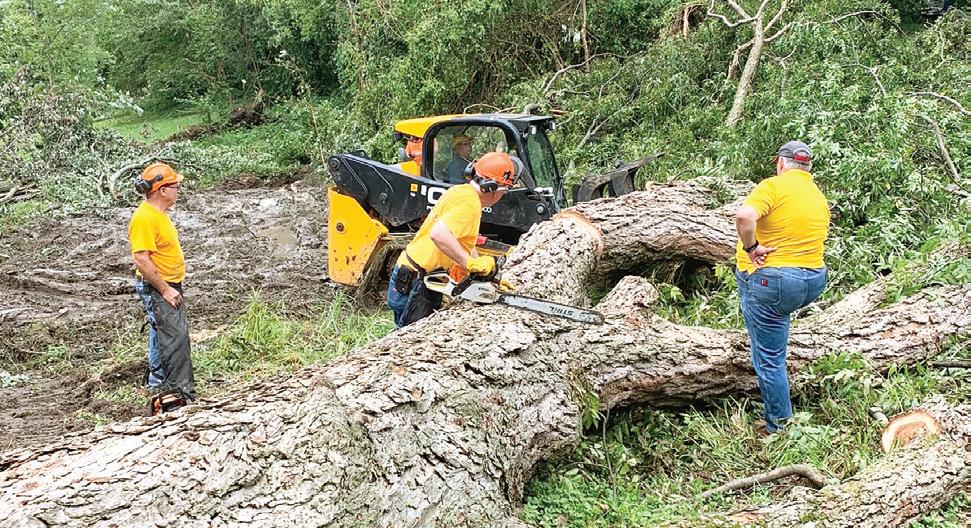
3/27-28 South Region
4/16-18 Central Region
Join the third largest relief ministry in the nation, Southern Baptist Disaster Relief. More than 1,600 volunteers serve in Illinois, but there’s room for more. New volunteers should attend the Friday evening Introduction to Disaster Relief 101 Class and then take specialty classes on Saturday. The Chaplaincy class begins at 1 p.m. on Friday.

IBSA.org/DR | (217) 391-3126
DebbieMuller@IBSA.org
LEADERSHIP continued
Training Nights
Regional equipping sessions for leaders of church ministries
3/17 Journey Church, East Peoria
3/31 Emmanuel Baptist, Carlinville
This is an opportunity for every church leader to receive free quality church leadership training in topics including discipleship, missions, age-graded ministries, worship, and more.
(217) 391-3124 | TammyButler@IBSA.org
Annual Women’s Conference
4/24-25 Crowne Plaza Hotel, Springfield
Don’t miss the women’s event of the year! Enjoy a time of spiritual renewal and fellowship. Increase your awareness of ministry and mission opportunities and training resources. Return to your church with new leadership development ideas for local ministries and a deeper awareness of ministry partners.
IBSA.org/Priority | (217) 391-3138
AubreyKrol@IBSA.org
IBSA.org

29
MISSIONS
MISSIONS
Mission Trips
Mobilize your church for missions in Illinois or worldwide. IBSA sponsors dozens of trips each year for ministry and for training. For more information about IBSA-led mission trips, contact: BradLovin@IBSA.org | (217) 391-3131
RachelCarter@IBSA.org | (217) 391-3101
National
Las Vegas – March 14-21
Partner with Safety Home on refugee engagement, women’s enrichment programming, and evangelist outreach. Team Leader is Jeanette Cloyd. Trip Cost: $800 plus airfare, all inclusive. Deposit: $150 non-refundable, due 90 days before departure.
Washington D.C. – April 6-10
Work on community engagement through medical clinics targeting the refugee population. Team Leader is LeAnn Barr, Carlinville. Deposit: $150 non-refundable, due 90 days before departure.
International
Uganda – January 20-31
Partner with International Mission Board (IMB) missionary James Herron to hold medical clinics and do village evangelism. Team Leaders are Dewayne and Judy Taylor, Harrisburg. Trip Cost: $2,300 Deposit: $150 non-refundable, due 90 days before departure.
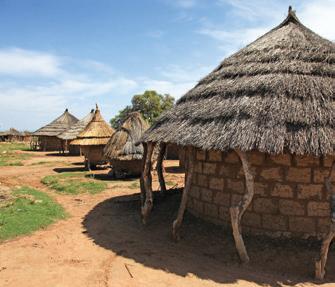
Cooperative Program Sunday
4/26 Throughout the SBC
The world’s most effective system for missions giving is the Cooperative Program (CP) of the Southern Baptist Convention. Through offerings from all our churches, CP produces about $190 million for missions work every year. Each time you give to your church, a small portion (whatever percentage your church chooses) goes through CP to the mission field, starting in Illinois and then to the whole world.
IBSA.org/CP | (217) 391-3119
LisaMisner@IBSA.org
Journeys
Where is God calling you?
Go to IBSA.org/missions to see the full listing of mission trip opportunities. Contact Rachel Carter to request your copy of the 2020 mission trip booklet.

South Asia – March 12-20
Partner with the IMB to explore the ministry and work happening in one of the world’s most densely populated cities. Encounter the world’s largest unreached people group. Team Leaders are Jon and Lacey Bell, Salem. Trip Cost: $1,000 plus airfare. Deposit: $150 non-refundable, due 90 days before departure.
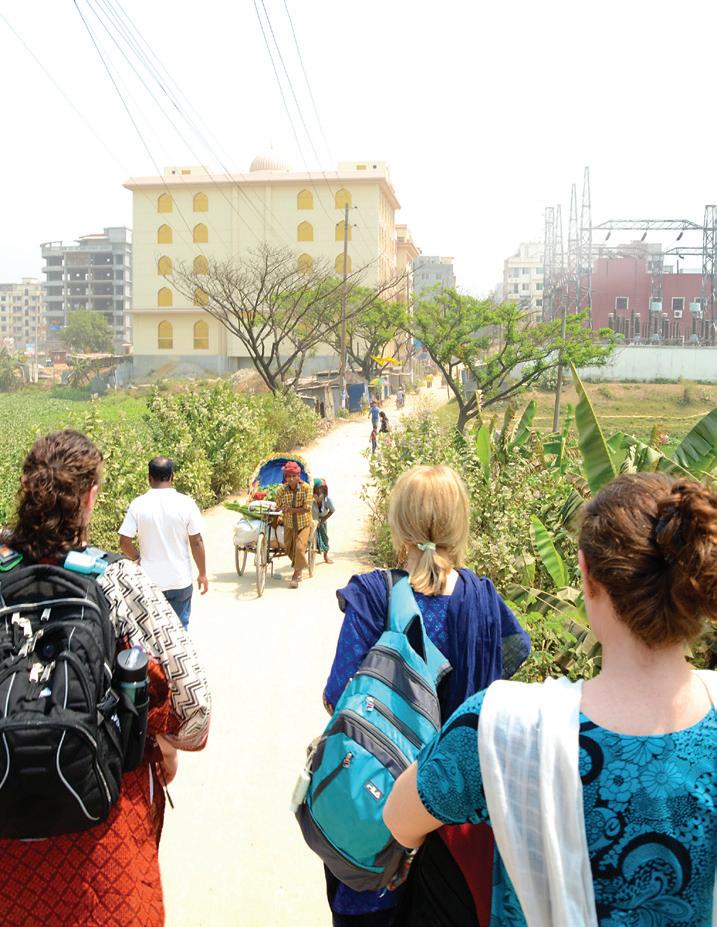
Children’s Missions Day
3/21 Various Locations
Children’s Missions Day is an amazing missions experience for girls and boys in grades 1-6. Children and their leaders will have the opportunity of choosing a hands-on ministry project to make community missions come alive to each child. Cost: $15 per person (includes T-shirt).

IBSA.org/Missions | (217) 391-3101
RachelCarter@IBSA.org
30 RESOURCE SPRING
2020
Ill inois Baptist State Association
MISSION TRIPS 2020
IBSA camps experience growth
In 2019, Lake Sallateeska and Streator Baptist Camps hosted IBSA camps including Kids Summer Camps, Father-Son Camp, Fused, and Battle Ready camps for kids and students. Camp attendance grew by 6% overall with nearly 1,200 participants!
The student camps (“Battle Ready”) held at Lake Sallateeska experienced the highest increase with 17% growth. IBSA Summer Camps exceeded 500 for the first time! Thank you to Illinois Baptists for your participation.
IBSA camp attendance at Streator Baptist Camp is up 15% since 2017. Lake Sallateeska Baptist Camp has seen an 8% increase in attendance in that same period.
This June and July will bring more camp fun, fellowship, and discipleship to the newly renovated facilities at both camps. There will be opportunities to attend camps in the northern part of the state at Streator Baptist Camp and in the south at Lake Sallateeska Baptist Camp just outside of Pinckneyville.
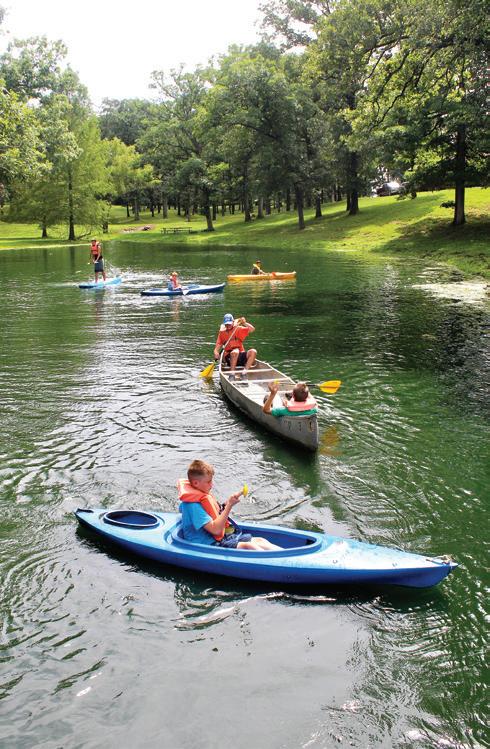
Watch for the Summer 2020 issue of Resource magazine for camp dates.
Philip Hall, Manager

(618) 336-5272
LakeSallateeska@IBSA.org
IBSA.org/LakeSallateeska
BCHFS plans crisis pregnancy clinic
At the 2019 IBSA Annual Meeting, Denny Hydrick, executive director of Baptist Children’s Home and Family Services announced its intention to open a crisis pregnancy clinic.
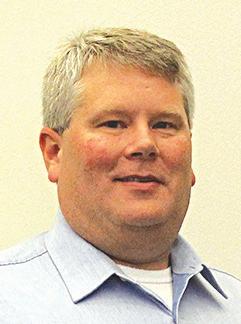


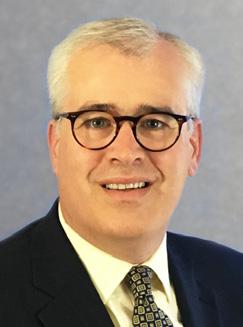
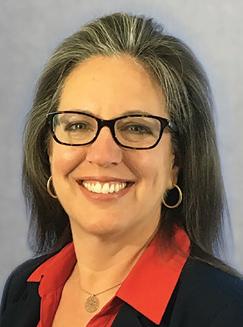
Referencing Ephesians 6:13, he shared, “We’ve been working to respond to this day of evil that has come for the unborn here in the state of Illinois. Your ministry continues to stand firm for those that cannot speak for themselves…”
Hydrick asked Illinois Baptists to pray for what he called a “vital need and a public way to express God’s value” of life.
Administration Office 949 County Rd. 1300 N. Carmi, IL 62821 | (618) 382-4164
BCHFS.com
BFI stewardship plan provides care
Jean Powell, a member of First Baptist Harrisburg, contacted the Baptist Foundation of Illinois to have her will drafted, which gave her an opportunity to discuss having durable powers of attorney (POAs) with her 93-year-old mother.
Not long after, her mother was diagnosed with Alzheimer’s disease and then had a stroke.
Mike Young, Manager (815) 672-0084
Streator@IBSA.org
IBSA.org/Streator
“Even before my plan comes into place, Mom’s POAs have given us a peace because we’ve been able to do what mom wanted,” shared Powell.
(217) 391-3116
BaptistFoundationIL.org

IBSA.org 31
Doug Morrow Sheila Jessen
Denny Hydrick
SERVICES & FACILITIES
My virtual warm up
At the end of this edition on creating warm fellowship in your church, you may be surprised to find a closing column about a community group meeting via video conference. After all, what’s colder than screens? I can tell you as a member of that group, though, that the past few months have revolu tionized the way I think about Christian communi ty and relationships.
Six of us meet for an hour every week, late enough that kids are in bed and I’ve even had time to brew a cup of (decaf) tea. My husband, Chris, and I settle in and log into a virtual meeting. We spend the next hour talking to four of our friends about the spiritual discipline or practice we’ve studied that week.

We’ve covered Bible-reading, the practice of Sabbath, and Scripture memorization, among others. Our next training module is on evangelism. In more than 30 years as a Christian, the concept of discipleship has never seemed as attainable as it has in this season of walking with others along the same road—from the comfort of my own couch.
When I think about what has made my virtual community so effective, I think it boils down to three things:
1. Our meetings are consistent and mostly distraction-free. The coaches who lead our group (my pastor and one of our elders) have worked hard to keep our meetings to an hour. We start with a brief time of prayer requests and reasons to celebrate from the previous
week. Since our time together is relatively short, we maximize the hour by sticking close to our material for the week.
2. Our study material is focused on personal discipleship. The curriculum we use, developed by the North American Mission Board, includes articles and book chapters to read, videos to watch, and a few written assignments to complete every week. The homework, which amounts to around three hours a week, points me as an individual believer to deeper devotion to Christ and stronger commitment to spiritual discipline.
3. Our time is formatted like a coaching session. We submit our assignments online before our weekly meeting, and our coaches review them and ask discussion questions about what we’ve written. It’s discipleship in real time. It has compelled me not only to get my homework done, but also to learn from how my fellow group members are interacting with the material.
These principles are transferrable to in-person gatherings too, but they may be especially helpful for people who are new to the concept of community. Or, for those of us who are busy and easily distracted, but still can benefit from the accountability of weekly assignments and a consistent meeting time. My virtual community has invited me into warmer fellowship with fellow believers because I know there are people personally invested in my spiritual development, as I am in theirs.
Flynn
32 RESOURCE SPRING 2020
“And let us watch out for one another to provoke love and good works, not neglecting to gather together, as some are in the habit of doing, but encouraging each other, and all the more as you see the day approaching.”
– Hebrews 10:24-25
An online Bible study changed how I think about community
– Meredith

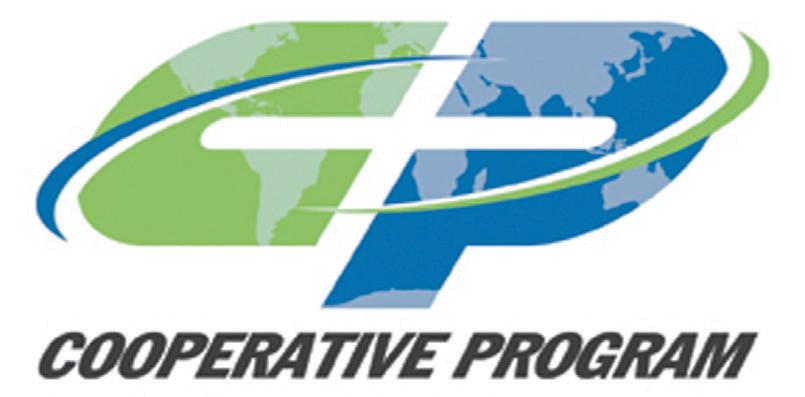





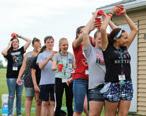







Because of your missions giving through Cooperative Program, church planting catalyst John Yi helps start churches for first- and second-generation immigrants in Chicagoland and across Illinois. See John’s story and the whole video series at IBSA.org/CP Encourage missions giving with more resources on Cooperative Program As a missionary in Czech Republic, Mike Young facilitated several camps each year for people to hear the gospel and learn more about God’s will for their lives. “There was something about being away from the city, being away from their job, away from their work, school, that they were able to just focus—to look at God’s Word, to consider God maybe for the first time in their lives.” The same is true in his home state, Young said. After nine years with the International Mission Board, Mike and his family returned to Illinois, where he manages Streator Baptist Camp. At Streator, IBSA’s camp facility in northern Illinois, and Lake Sallateeska in the south, children, students, and adults meet throughout the year for camps and retreats designed to help them connect with God. Many meet him for the first time at camp. This ministry is provided through the Cooperative Program, Southern Baptists’ main method of channeling financial support to local, national, and global missions. “What we have in the Cooperative Program is really special,” Young said. While other missionaries need to raise funds to support their work, Southern Baptist missions personnel know their fellow Baptists are giving faithfully through the Cooperative Program. “It allows us the opportunity to focus on sharing the gospel, on building relationships, on leading people to Christ. “We are very thankful because CP allows us to see God working in people’s lives.” mission illinois Churches Together Advancing the Gospel Baptist churches reach the world through Cooperative Program giving missions. Call the Illinois Baptist State Association at (217) 391-3119 MissionIllinois@IBSA.org for free subscription for your church. Illinois Baptist State Association Mike Young, Streator Baptist Camp God’s meeting place People are often open to receive the gospel message at camp that maybe they aren’t open to in the busyness of their lives. 43.5% goes to support missions and ministry in North America and around the world. Did you know? Baptists in Illinois give about $6 million every year through the Cooperative Program. 56.5% plants and strengthens churches in Illinois, and equips Baptists for missions, evangelism, and discipleship. CP also supports camps ministry and retreats at Streator and Lake Sallateeska. Opening doors forthe Gospel Cooperative Program 1% SBC Theological Education SBC North American Mission Board IBSA Camps, Student Centers, BFI Subsidy 6% IBSA Church Cooperation Services Operations Church Planting 8% 12% Evangelism and Missions Strengthening 16% SBC Executive Committee, Operating Budget SBC Ethics Religious Liberty Commission 9% See Mike Young’s story at IBSA.org/CP I’ve had teenagers come to me after camp and say, ‘Thank you. learned more about the Bible this week than in my entire life. have a better understanding of who Jesus is…and how am supposed to live my life.’ – Jack Lucas, IBSA Next Generation director Watch a video about Streator Baptist Camp at IBSA.org/Streator Carrie Jones thought she knew about the Cooperative Program. As member of GA’s (Girls in Action), she learned about Southern Baptists’ channel for missions support every week at her impact of CP up-close—her father, Charles Campbell, later helped plant churches with IBSA and now with the North American Mission Board. But it was her time as seminary of Baptists working together to fund missions and ministry, plus theological education for the next generation of leaders. “I didn’t even realize how thankful was for it until was in seminary,” said Jones, who recently served alma mater, Southern Seminary in Louisville, Kentucky. “Over 16,000 students from our six Southern Baptist seminaries are being equipped to become pastors, trainers, missionaries, and leaders, so that many more may hear the gospel around the Through CP, tuition is cut in half for seminary students who are members of Southern Baptist churches. “Being able to tell students that on the phone,” Jones said, “they were always so excited, and normally shocked. “They didn’t know about all the great benefits of the Cooperative Program, and so was my great joy to tell them about that. And it really has eased the burden for so many students that want to be equipped so that they can share the gospel with many more.” CP benefits both the giver and the recipient, Jones said: the average churchgoer, who often doesn’t realize how their gifts can make a difference, and the seminary student, working and training to fulfill the call of God on their lives. For both, CP opens doors to the gospel. mission illinois Churches Together Advancing the Gospel Mission Illinois churches reach the world through Cooperative Program giving missions. Call the Illinois Baptist State Association at Illinois Baptist State Association Carrie Jones Southern Seminary, Master of Arts in Leadership Continuing education Cooperative Program was the #1 way was able to go to seminary. Did you know? The Cooperative Program supports tuition for Southern Baptist students at six seminaries and their extension centers across the country. 22% See Carrie Jones’s story at IBSA.org/CP of national CP gifts aid theological education Gateway (Ontario, CA) Southwestern (Ft. Worth, TX) Midwestern (Kansas City, MO) DISTANCE LEARNING New Orleans Seminary students pray over refugees housed in abandoned buildings during mission trip to Athens, Greece. Opening doors forthe Gospel Cooperative Program Download these free bulletin inserts at IBSA.org/CP. Illinois Baptist State Association




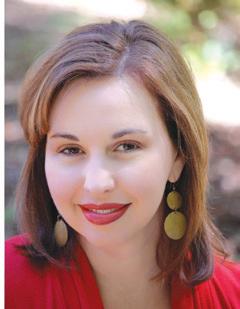
Nonprofit Organization U.S. POSTAGE PAID Peoria, Illinois Permit No. 325 Illinois Baptist State Association 3085 Stevenson Drive Springfield, IL 62703 DIRECTORY PLANNER EQUIPPING IBSA people who can help For spring events & outreach ideas Training events & conferences Starts on page 3 Starts on page 17 Starts on page 25 April 24-25 • Crowne Plaza Hotel, Springfield
IBSA.org/Priority To register go to
Chrystie Cole Biblical Femininity
Elizabeth Encinia Living Missionally
Kasey Ewing Trusting God
Kimberly Sowell From Committed to Surrendered


























































 by Stephen Williams
by Stephen Williams
















































